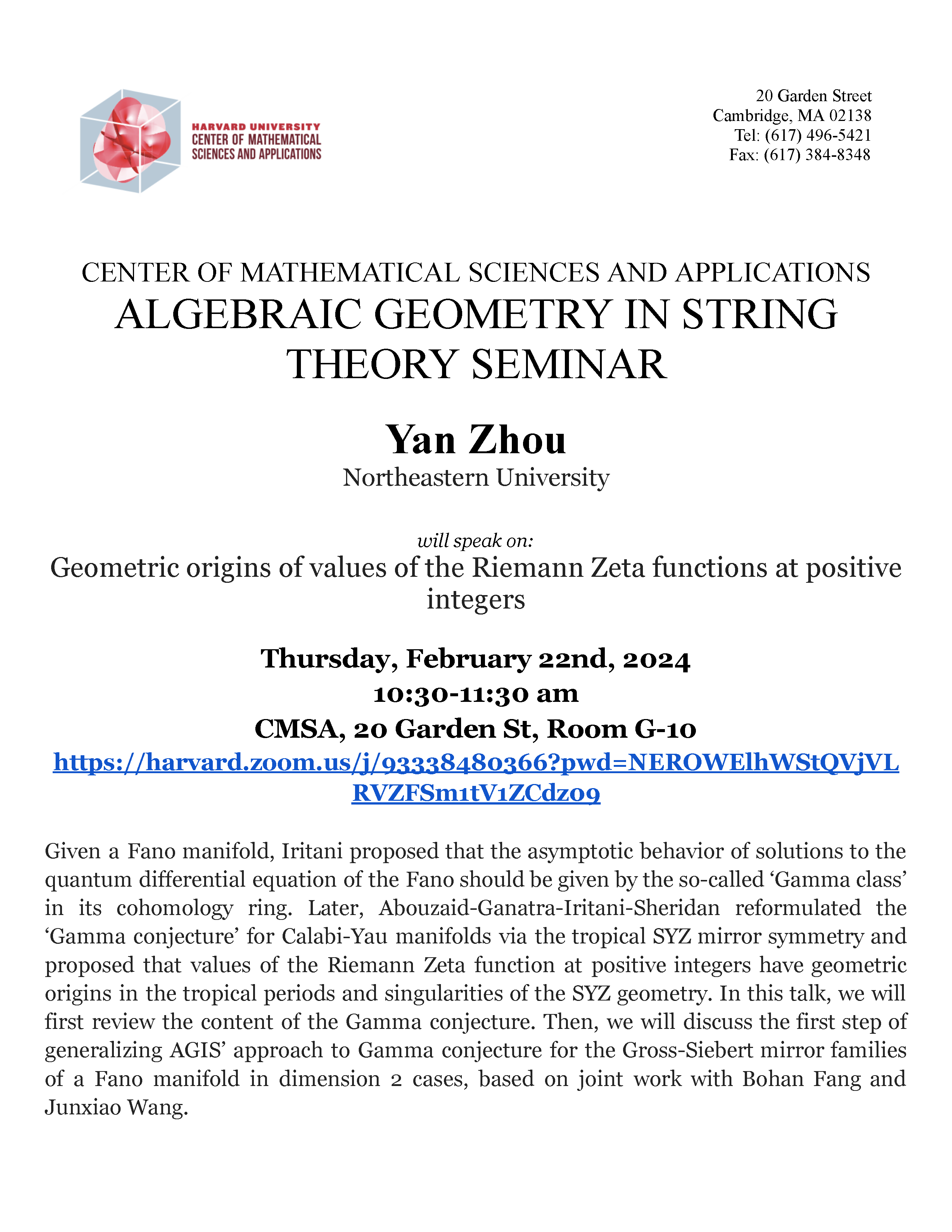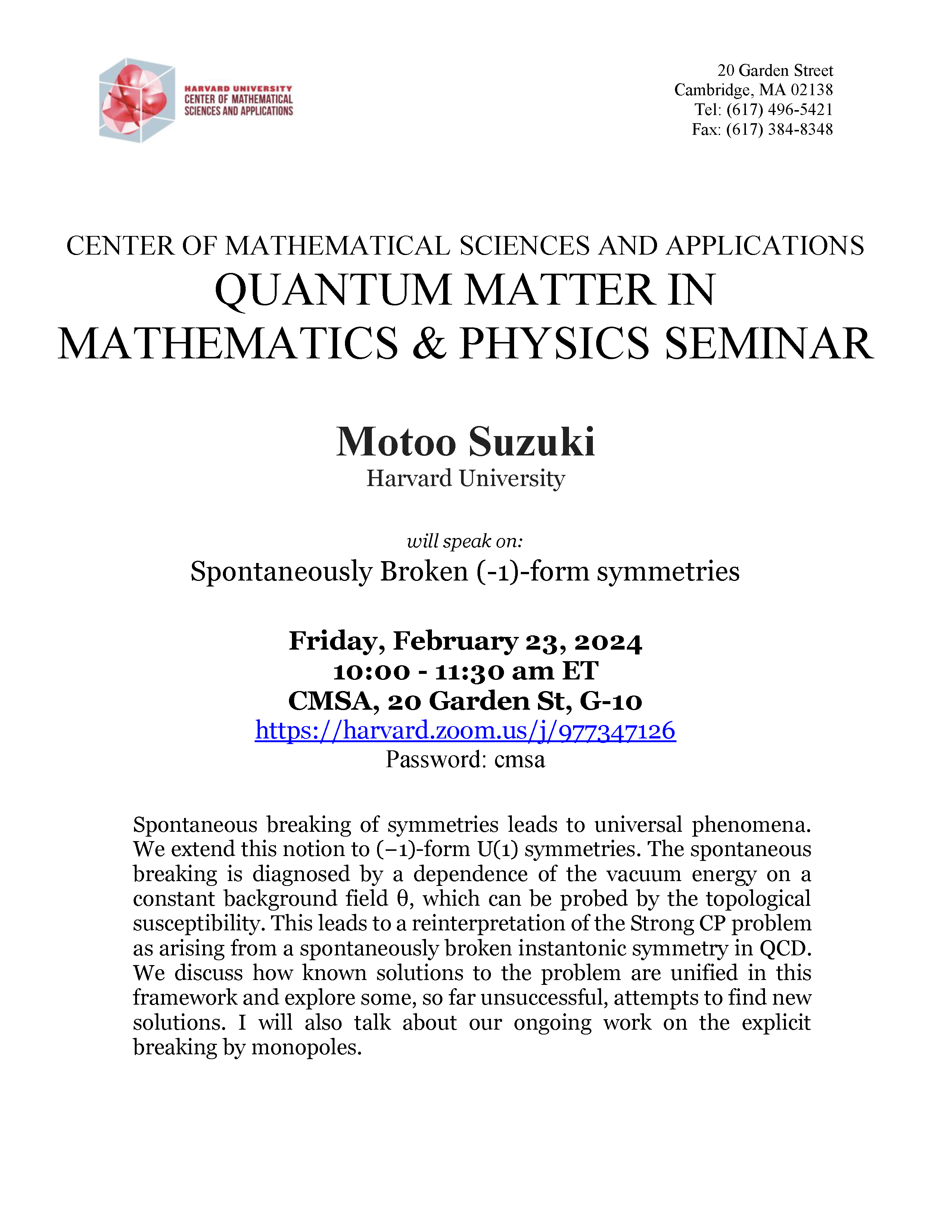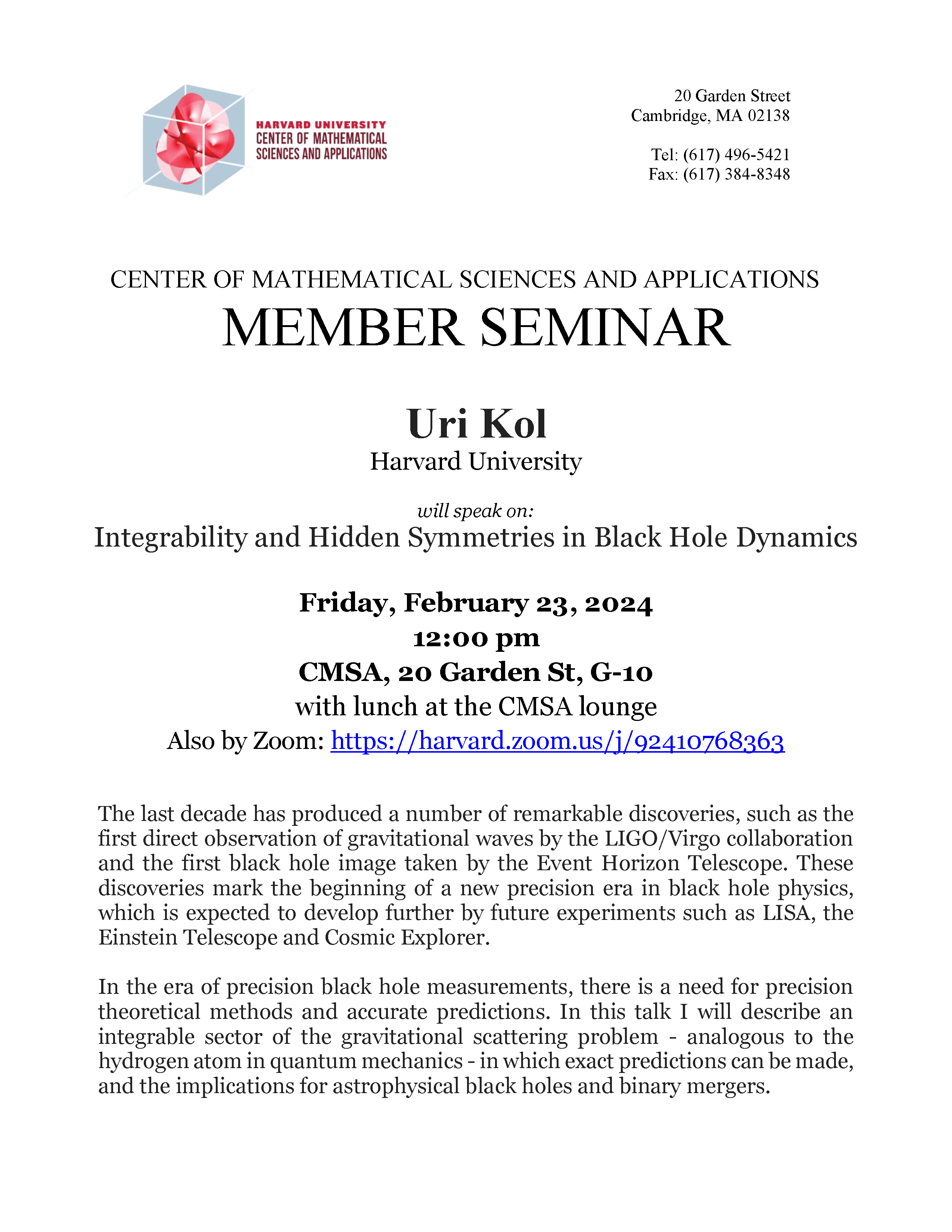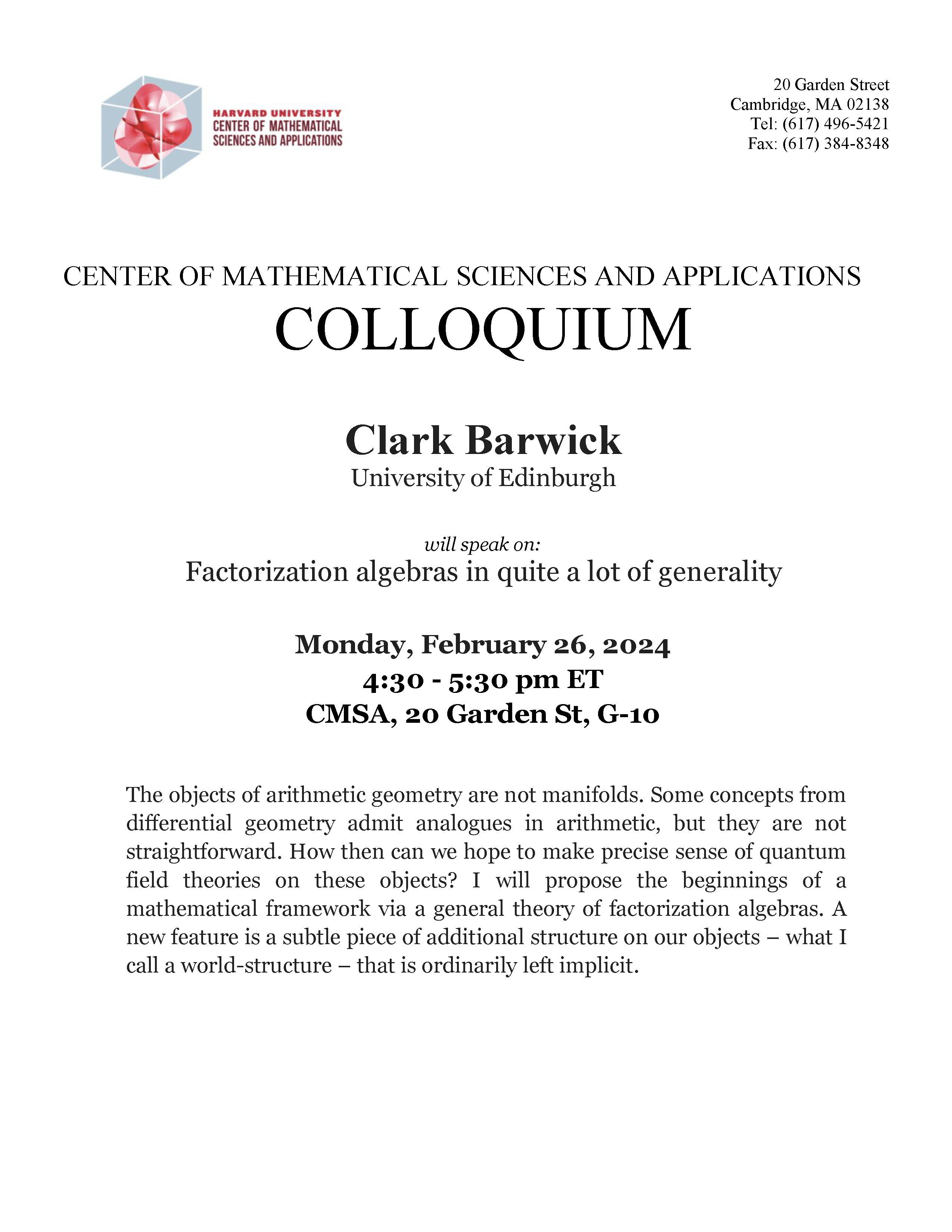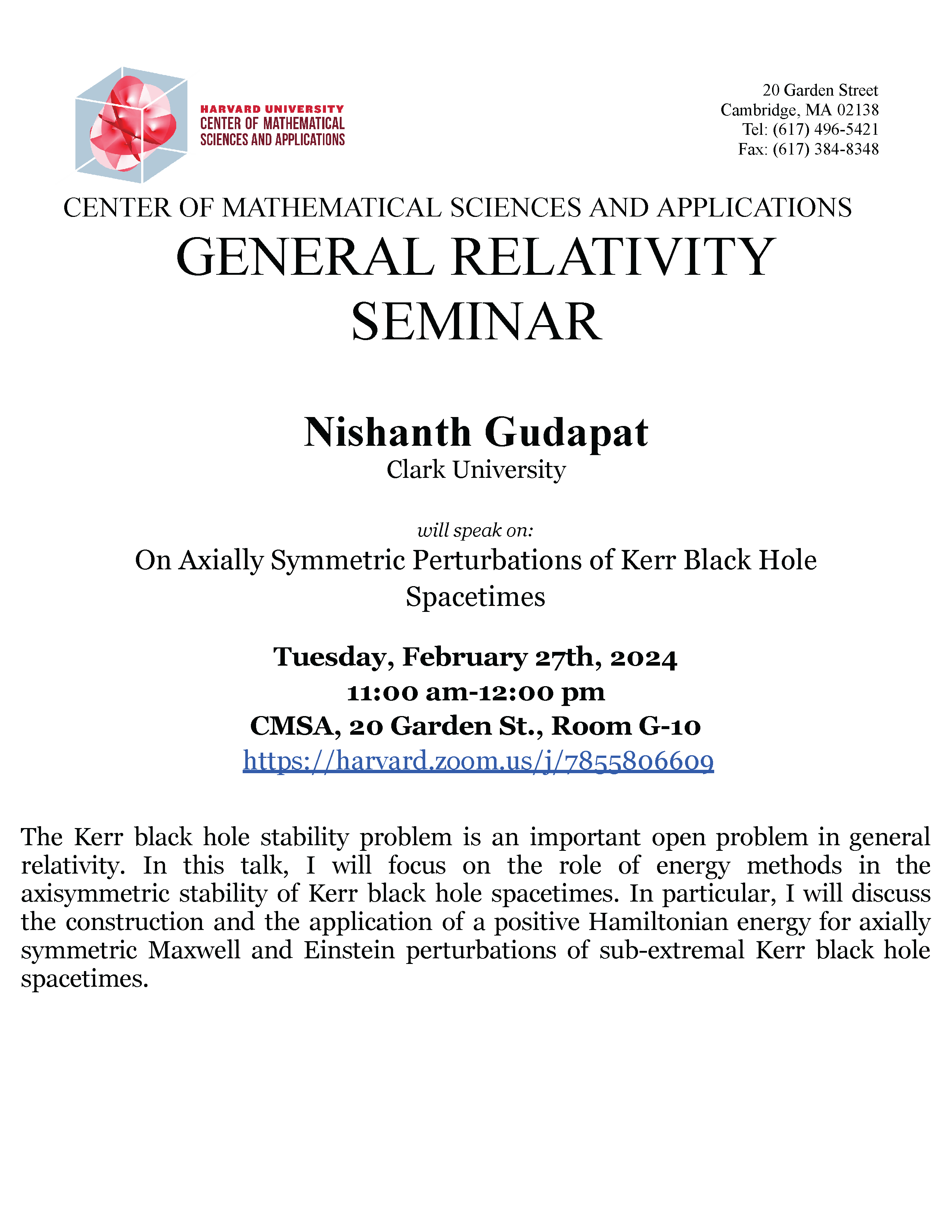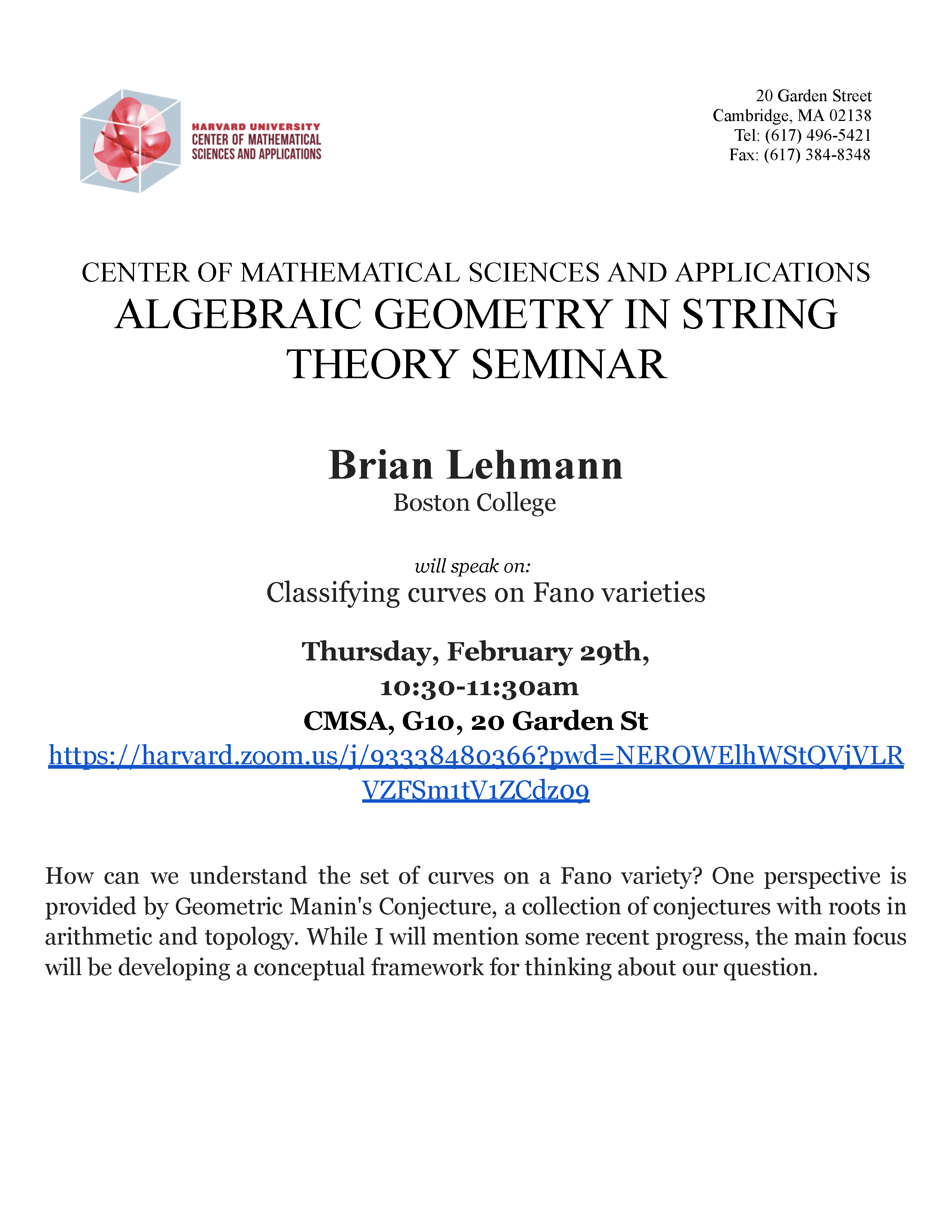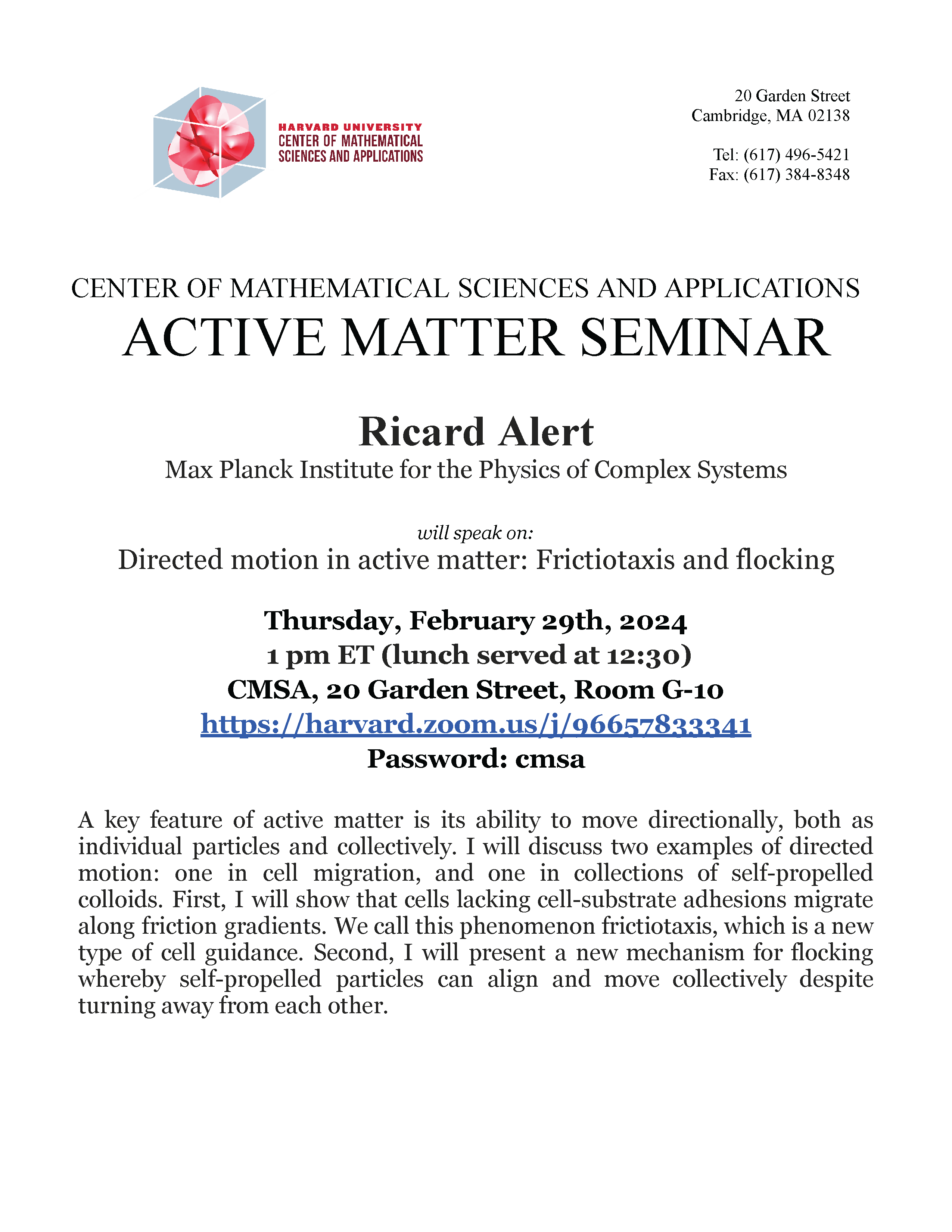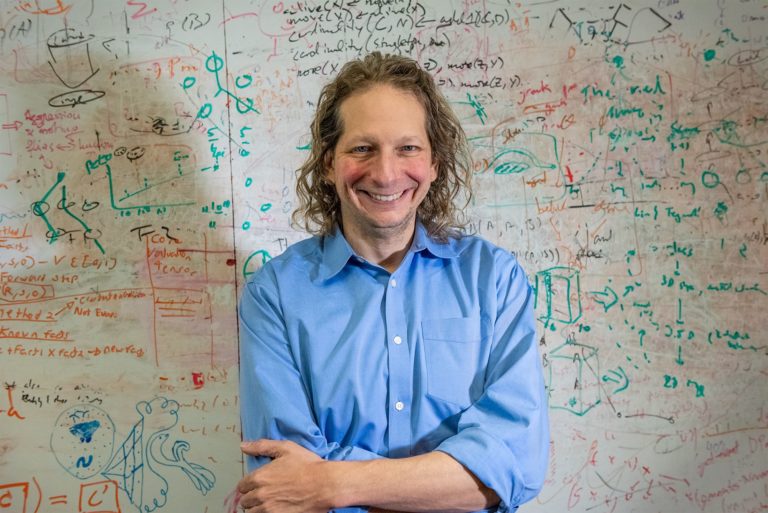Geometric origins of values of the Riemann Zeta functions at positive integers
CMSA Room G10 CMSA, 20 Garden Street, Cambridge, MA, United StatesAlgebraic Geometry in String Theory Seminar Speaker: Yan Zhou, Northeastern Title: Geometric origins of values of the Riemann Zeta functions at positive integers Abstract: Given a Fano manifold, Iritani proposed that the asymptotic behavior of solutions to the quantum differential equation of the Fano should be given by the so-called ‘Gamma class’ in its cohomology ring. […]

